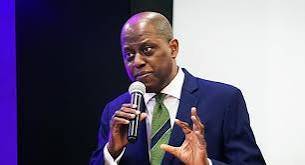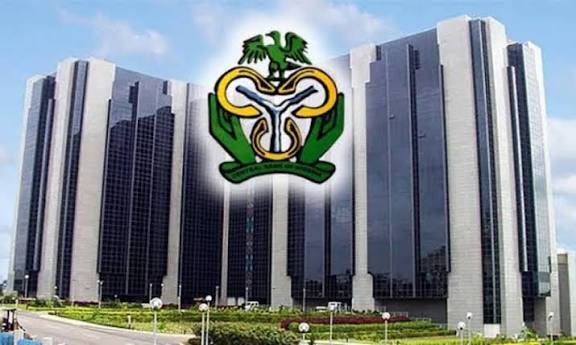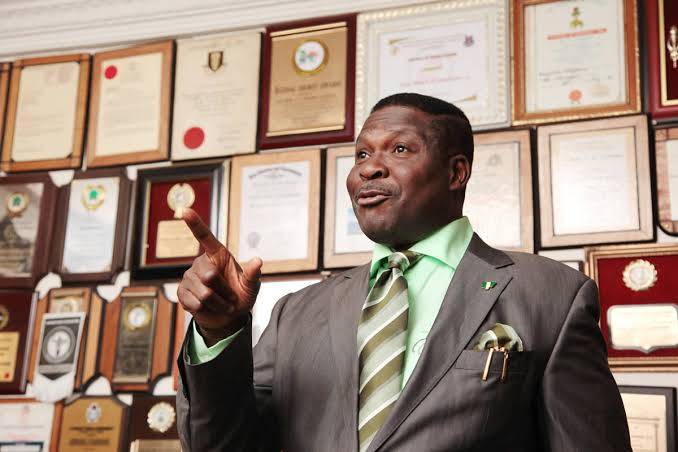By Segun Ayobolu
In largely underdeveloped capitalist systems such as Nigeria with relatively low levels of institutionalization, weak judicial structures and processes as well as fragile law enforcement, the role of regulatory agencies established to mitigate the negative effects of the operations of market forces, check corporate abuse and irresponsibility and safeguard the interests of consumers and society at large is critical. The leading agency in Nigeria in this regard is the Federal Competition and Consumer Protection Commission (FCCPC), which was established through the Federal Competition and Consumer Protection Act 2018 to facilitate fair, rule-guided business practices while protecting the interests of consumers.
As lucidly expressed in its mandate statement, the FCCPC’s oversight function is “geared towards promoting competition within the Nigerian economy while preventing any practices that could lead to the abuse of market dominance or monopolies, all for the benefit of consumers. In addition, it investigates anti-competitive practices, including price fixing, bid rigging, market allocation, and the abuse of dominant market positions, for possible legal actions against the involved parties”. Central to its operations is addressing consumer complaints and grievances as regards perceived exploitative prices, substandard goods and services and imposing sanctions or taking legal action against persistent corporate infractions.
Under its current Chief Executive Officer/Executive Vice Chairman, Mr Olatunji Bello, renowned journalist, editor, lawyer and administrator, who assumed office in June 2024, the FCCPC has significantly scaled up its activities aggressively holding corporate organizations to account while meticulously addressing consumer complaints and grievances. In the statement announcing his appointment, President Tinubu had mandated Tunji Bello to “ensure the holistic realization of the Commission’s mandate of protecting and promoting the interest and welfare of Nigerian consumers, and ensuring the adoption of measures to guarantee the safety and quality of goods and services”. The role of the FCCPC has acquired added significance against the background of the economic hardships attendant on the painful but inevitable economic reforms of the Tinubu administration particularly the removal of fuel subsidy and the merger of the parallel foreign exchange markets that had engendered high inflationary spirals that are only gradually beginning to recede.
Citing high operational costs, corporate organizations in different sectors have increased their tariffs to the consternation of already hard hit consumers despite the fact that many of them continue to report high profit levels. In the telecommunications sector, for instance, there has been a 50 per cent hike in tariffs. In the electricity industry, the regulatory authorities approved an increase in tariff for Band A customers from N68 KWh to N225 KWh but which was later pegged at N209.50. Banks have increased the cost of transacting on Automated Teller Machines (ATM). The Nation newspaper columnist, Sanya Oni, recently cited the example of the private entertainment company, MultiChoice and its subsidiary, DSTV, and their penchant for arbitrary and incessant price increases.
In the words of Oni, “For instance, in May 2023, premium package subscribers were hit with a 51.23% increment from N16,200 to N24,500. Six months after, another major increment of 20.41% would follow, pushing the price to N29,500. Yet again, in another six months, that is, in May 2024, the service provider would be back with a new price of N37,000, a leap by another 25.42%; and the latest adjustment effective Saturday, March 1, taking the package to N44,500, a 21% increase – representing over 300% increase using 2015 as a base year”.
The new resurgent and activist FCCPC, under Tunji Bello, has not been dormant in the face of seemingly whimsical price increases by various corporate organizations. Some of them, unused to having their excesses challenged, have pushed back, outrightly flouting the regulatory agency’s directives or engaging it in legal duels.
For instance, on Thursday, February 27, the FCCPC directed MultiChoice Nigeria not to effect any new price increases as it had announced until the conclusion of the Commission’s ongoing investigation into the proposed price hikes. It had earlier directed the Chief Executive Officer of the company, Mr John Ugbe, to appear before its investigative hearing to justify the envisaged increases. The FCCPC had stated that “Pursuant to this, MultiChoice is expressly instructed to maintain the existing price structure as of February 27, 2025, pending the Commission’s review and final determination on the matter. Maintaining the status quo on pricing is essential to prevent any potential consumer harm during this period”. However, in a reckless display of the highest disregard and contempt for not just the regulatory authority but Nigeria’s legal system, MultiChoice Nigeria proceeded with its price increase on March 1, 2025.
Consequently, on March 5, the FCCPC instituted legal proceedings against MultiChoice Nigeria and its Chief Executive Officer, John Ugbe, “for violating regulatory directives, obstructing an ongoing inquiry and engaging in conduct deemed violations of the provisions of the Federal Competition and Consumer Protection Act (FCCPC). According to the FCCPC, “By disregarding the FCCPC’S directive and implementing the price hikes before appearing before the Commission’s investigative hearing on March 6, 2025, MultiChoice has not only flouted regulatory processes but also demonstrated a pattern of conduct that undermines consumer rights and fair competition”. In any self-respecting country, there should certainly be severe consequences for such contemptuous impunity especially by a foreign entity.
Earlier, a shareholder of MTN Nigeria who is also a legal practitioner, Emeka Nnubia, had instituted legal proceedings against the FCCPC seeking to halt the regulatory agency’s investigation into suspected potential anti-competitive practices by the MTN. Nnubia contended that the FCCPC’s request for information from MTN violated data protection laws and that regulatory authority over MTN resided with the National Communications Commission (NCC) and not the FCCPC. In his ruling on February 7, 2025, Justice F.N. Ogazi, of the Federal High Court in Lagos, affirmed the statutory authority of the FCCPC to regulate competition and consumer protection across all sectors of the economy and that the regulatory agency’s request for information from MTN did not violate any data protection laws but was undertaken within its statutory powers.
When the NCC approved a 50% adjustment in telecommunications tariffs, the FCCPC warned that “Issues such as network congestion, dropped calls, inconsistent Internet speeds, unusual data depletion, and poor customer service have remained prevalent concerns. It is, therefore, crucial that tariff adjustments directly translate into demonstrable and tangible service enhancements for consumers.”. The FCCPC took on the Ikeja and Eko electricity distribution companies (IKEDC and EKEDC) when they contemplated charging consumers for the cost of replacing ‘obsolete’ meters insisting that the Discos must comply with the order by the Nigerian Electricity Regulatory Commission (NERC) that “meter replacements must be prompt, without disrupting service and at no cost to the consumer; and ensuring that consumers are not subjected to estimated billing due to delayed installations”.
The FCCPC had also, at various times, engaged other corporate giants like Guarantee Trust Bank (GTB) and Air Peace on alleged violations of consumer rights. It is certainly a new and welcome season of ensuring corporate accountability in Nigeria in the best interest of consumers and society at large.











